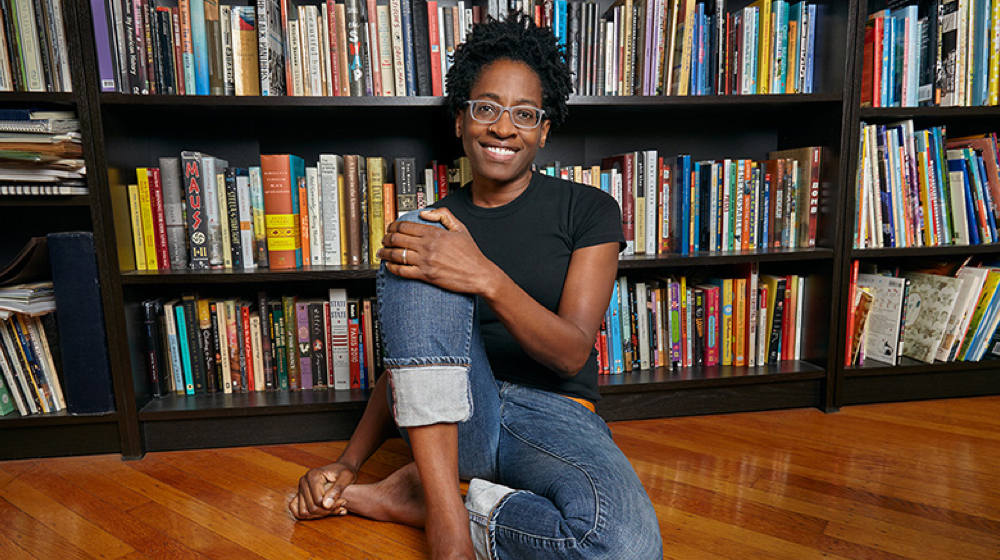I marvel at book talk attendees. People trek from great distances, clutching worn copies of favorite reads. They stand in long lines for a brief word with (or autograph from) a favorite writer. The brave ones step to the podium to share stories or ask questions. Their remarks bring more voices and perspectives into conversation. Their contributions add welcome depth and texture to the occasion.
At a Jacqueline Woodson BookPeople talk that I moderated in October, an educator in the audience asked, “What has been your hope, as a writer yourself, that your children’s teachers would do for them in the area of reading and writing?”
I loved the question, and Woodson’s eloquent answer. She spoke about celebrating all reading and giving kids the time and books they need to find their own pathways into literature. We all should listen.
Her response, word-for-word:
That’s a great question. What is my hope that my children’s teachers do for them in the area of reading and writing? I hope they let them read slowly. I hope they let them read whatever they want.
You know, I was in fifth grade reading picture books and people felt some kind of way about it. I remember, back in the ’90’s and early 2000’s, the pushback against graphic novels. My son read graphic novels forever and what cracked the code for him to read other books was to continue to read graphic novels and The Outsiders in fifth grade. He had a really great teacher that taught that book so slowly, so, so slowly, and the reward was they could watch the film at the end of it.
Letting them read what they want, letting them read slowly, and having, when they can afford to, really diverse classroom libraries. I’ve gone into classrooms where the kids have been all white and the books have been all white and I’m like, that’s not helping anybody, especially me, for when they first meet me and don’t know what a black person is. But, just having those diverse books, not only in terms of race and gender stuff and sexuality, but in terms of economic class and in terms of readability, you know, the different reading levels.
So, when my kids were younger, whenever I was looking for a new school for them, the first thing I would do is go into the classroom library and then, if there was a school library, into the school library. But, really, so many books, even if there’s not a classroom library, there’s a public library, there’s First Book. There are all these organizations that are able to help teachers get those books into their classrooms if they don’t have the funding for them. That’s what I would love.
And all reading is celebrated. When kids are in different reading groups because they read at the lower level or at the higher level, they know that. I wouldn’t mind if that didn’t exist anymore. I’ve talked for a long time about getting rid of that term, “struggling readers.” They know when someone considers them a struggling reader. So how do we talk about them being where they are and where they are is okay?


